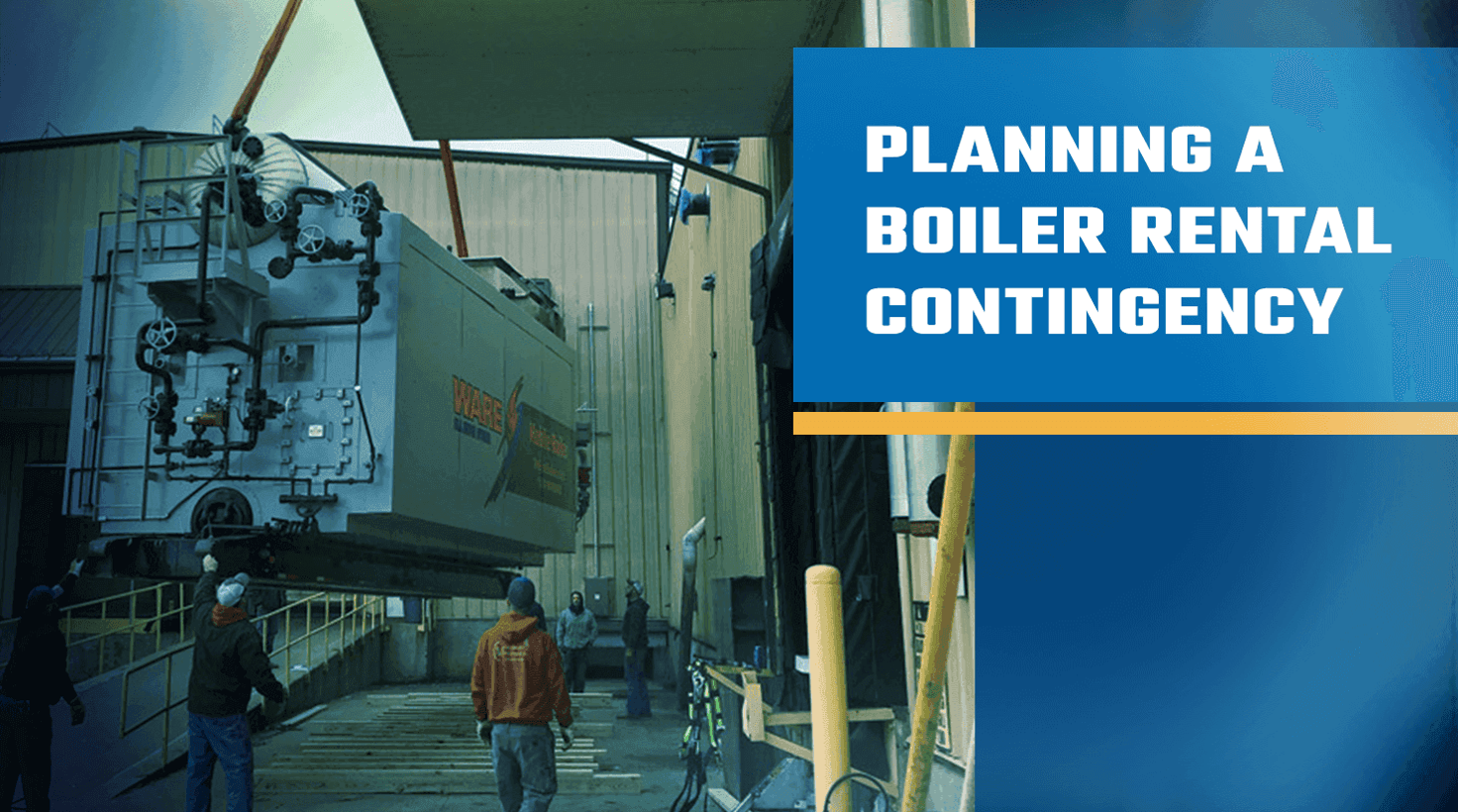Having a rental contingency plan in place can save you time and money. Whether it’s for an emergency shutdown or planned outage, follow this checklist to make sure you’re planning ahead and ready to go.
Utility Connections
First, identify your utility connections. These include:
- Steam lines
- Fuel line (natural gas or oil)
- Makeup water
- Condensation return
- Water treatment
- Electrical power for external hookup
- Boiler blowdown & drains
Rental Items to Address
Once you’ve identified your utility connections, there are other common concerns that you shouldn’t overlook:
- Inclement weather protection: make sure you take weather into account, especially if you’re in a colder area and need to worry about things like freezing temperatures. Even if you’re in a warm weather area, some units have exposed control panels that will need to be sheltered on rainy days.
- Boiler exhaust outlet: Avoid placing your exhaust outlet near air-intakes or anywhere else air quality could be compromised.
- Noise restrictions: This is especially important if you’re not in an industrial area but somewhere more noise-sensitive, such as a school campus.
- Proximity to foot-traffic: Some boilers have a large footprint, and many require several lines that could cause problems if pedestrians frequently need to cross them.
- Permitting: This includes installation, operation, and emissions permits.
- Startup steam release: You’ll need to do a full-combustion analysis, which requires releasing a lot of steam. If your plant can’t take it, you’ll need to make provisions to find a way to release that steam.
- Rental agreement: These agreements can have legal repercussions. Taking the time to understand your agreement can pay off in the long run and ensure your projects can run smoothly.
Streamline the Process
Planning ahead is essential. The longer you’re trying to figure out your next step, the longer your plant is down. Here are some tips to help you streamline your process:
- Rental boiler availability: You’ll need to ensure the boiler size you need is available when you need it. The earlier you can confirm this, the better.
- Transit time: Oversized loads, weekends versus business days, and permitting issues are just some of the complications that can occur when transiting your rental boiler.
- Installation time: You’ll need to have an installation contractor, along with having your temporary connections ready for your boiler.
- Inspection: Before a boiler can be commissioned, both the boiler and installation must be approved by the local inspection authority. Schedule this with your installation contractor.
- Startup Time and Operator Training: Not only does startup time need to be taken into account, but spending the appropriate amount of time to train your operators is important and shouldn’t be overlooked.
Ready to Make Steam
These tips should help you save both time and money by getting your rental boiler up and running as quickly as possible. A good boiler rental provider should be able to help you with your contingency plan -- if you need assistance, or want to learn more contact us or download our Rental Contingency Plan checklist here.
